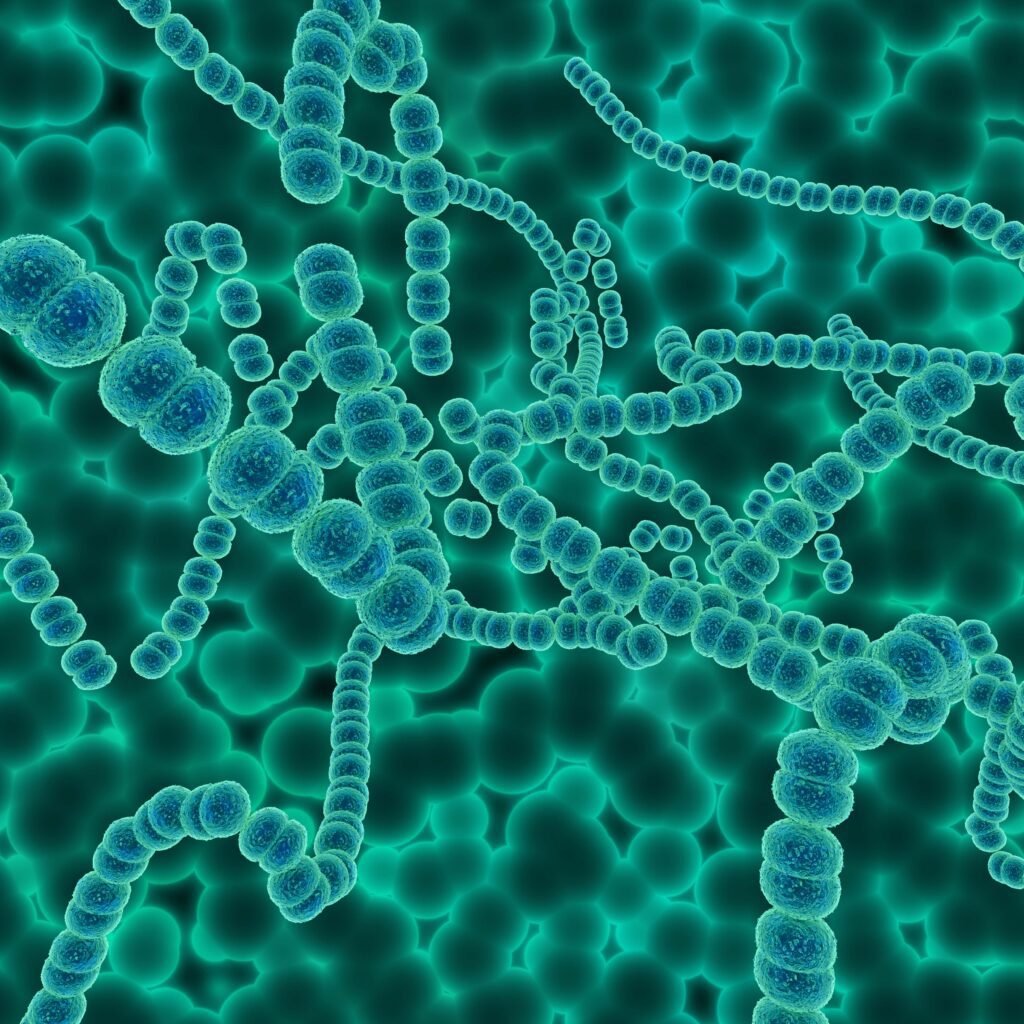In the world of wellness, few things have sparked as much curiosity and research interest in recent years as the microbiome. While it’s long been known that gut health affects digestion and immunity, groundbreaking research is now revealing a powerful link between the gut microbiome and hormonal balance. From estrogen to cortisol, testosterone to thyroid hormones, your gut plays a surprisingly central role in regulating your endocrine system.
So, what exactly is the microbiome? How does it influence your hormones? And what steps can you take to support this vital connection for better health, mood, metabolism, and fertility?
Let’s dive into the fascinating science behind the gut-hormone axis and uncover how maintaining a healthy microbiome might be one of the smartest strategies for hormonal harmony.
Table of Contents
What Is the Microbiome?

The microbiome refers to the trillions of microorganisms — including bacteria, fungi, viruses, and other microbes — that reside in and on your body. The gut microbiome, primarily located in your large intestine, is one of the most densely populated microbial ecosystems on the planet.
Each person has a unique microbiome fingerprint, shaped by genetics, diet, environment, medications, and lifestyle factors. These microbes aren’t just passive residents; they’re active participants in your health. They:
- Digest fiber and produce short-chain fatty acids (SCFAs)
- Regulate immune responses
- Produce vitamins like B12, K, and folate
- Defend against harmful pathogens
- Communicate with your brain via the gut-brain axis
- And — crucially — interact with your endocrine (hormonal) system
How the Gut Microbiome Affects Hormones
Hormones are chemical messengers produced by endocrine glands that regulate key functions such as mood, metabolism, reproduction, stress, and sleep. While hormones are made by organs like the thyroid, adrenal glands, pancreas, and ovaries/testes, the gut microbiome acts as a powerful hormonal modulator.
Here’s how:
1. Estrogen Metabolism and the Estrobolome
One of the most direct connections between the gut and hormones is through the estrobolome — the collection of gut bacteria capable of metabolizing estrogen.
- Estrogen is metabolized in the liver and excreted via bile into the intestines.
- In a balanced gut, beneficial bacteria deactivate and eliminate excess estrogen.
- However, dysbiosis (an imbalance in gut flora) can increase an enzyme called beta-glucuronidase, which reactivates estrogen, allowing it to re-enter the bloodstream — potentially contributing to estrogen dominance.
Estrogen dominance has been linked to:
- PMS and irregular cycles
- PCOS
- Fibroids
- Endometriosis
- Weight gain
- Breast and endometrial cancers
2. Cortisol and the Gut-Stress Axis
The gut-brain axis is a bi-directional communication network between the gut and brain, and cortisol — the primary stress hormone — is deeply involved.
- Chronic stress alters gut microbiota composition, reducing microbial diversity.
- In turn, dysbiosis triggers systemic inflammation and activates the HPA axis (hypothalamic-pituitary-adrenal), leading to elevated cortisol levels.
- This feedback loop can fuel anxiety, depression, insomnia, and adrenal fatigue.
A diverse, balanced gut microbiome helps regulate the body’s stress response by:
- Producing GABA and serotonin
- Reducing gut inflammation
- Enhancing vagus nerve signaling
3. Thyroid Function and Autoimmunity
The microbiome also plays a pivotal role in thyroid health. An imbalanced gut can:
- Interfere with the conversion of T4 to T3 (active thyroid hormone)
- Trigger autoimmune thyroid conditions like Hashimoto’s thyroiditis
- Reduce nutrient absorption of key thyroid cofactors like selenium, zinc, and iodine
Probiotic bacteria such as Lactobacillus and Bifidobacterial have shown potential in modulating immune responses and improving thyroid function in certain individuals.
4. Testosterone and Androgens
Men’s (and women’s) levels of testosterone and other androgens can also be influenced by gut health. Studies have shown that:
- Germ-free mice (with no gut bacteria) have significantly lower testosterone levels.
- Specific bacteria can increase androgen production or metabolism.
Additionally, conditions like PCOS, characterized by elevated androgens, have been linked to gut dysbiosis and inflammation.
5. Insulin and Blood Sugar Regulation
The gut microbiome influences glucose metabolism and insulin sensitivity, two factors that have ripple effects across the hormonal system.
- Beneficial microbes like Akkermansia muciniphila improve insulin signaling.
- Dysbiosis can lead to leaky gut, chronic inflammation, and insulin resistance.
- Blood sugar spikes affect cortisol, insulin, and reproductive hormones — contributing to mood swings, fatigue, and menstrual irregularities.
Signs Your Gut Might Be Disrupting Your Hormones
Many symptoms we typically blame on “hormones” may actually have gut-related roots. Watch out for:
- Bloating, gas, or irregular stools
- Fatigue and brain fog
- PMS, heavy periods, or skipped cycles
- Mood swings or anxiety
- Adult acne or breakouts
- Sugar cravings
- Weight gain (especially around the belly)
- Sleep issues
These symptoms could indicate an imbalanced microbiome that’s disrupting hormonal signals.
How to Support Your Microbiome for Better Hormonal Health

1. Feed Your Gut (and Hormones) with Prebiotics
Prebiotics are types of fiber that nourish good bacteria. Examples include:
- Chicory root
- Garlic
- Onions
- Asparagus
- Bananas
- Jerusalem artichoke
They help beneficial microbes thrive and produce SCFAs, which reduce inflammation and regulate hormones.
2. Incorporate Fermented Foods
Fermented foods are natural sources of probiotics:
- Yogurt (unsweetened)
- Kefir
- Sauerkraut
- Kimchi
- Miso
- Tempeh
- Kombucha
Aim to include a variety for diverse strains.
3. Minimize Antibiotics and NSAIDs
While life-saving when necessary, antibiotics and anti-inflammatories can decimate your gut flora. Use judiciously and always pair with gut-healing strategies.
4. Manage Stress
Chronic stress alters gut microbial balance and increases cortisol. Try:
- Mindfulness or meditation
- Gentle movement (yoga, walking)
- Breathwork
- Adaptogens like ashwagandha or rhodiola (consult your practitioner)
5. Consider Targeted Probiotics
Probiotics like Lactobacillus rhamnosus, Bifidobacterium longum, and Saccharomyces boulardii may support hormone regulation and gut health, especially in estrogen-related or mood-related conditions.
6. Balance Blood Sugar
Stable blood sugar helps stabilize insulin, cortisol, and reproductive hormones.
Tips:
- Eat protein and healthy fat at every meal
- Avoid skipping meals
- Minimize refined carbs and sugar
7. Support Liver and Bile Flow
A sluggish liver can impair hormone detox. Support it with:
- Cruciferous veggies (broccoli, kale, Brussels sprouts)
- Bitter foods (dandelion, arugula, artichoke)
- Adequate hydration
- Milk thistle or NAC (under professional guidance)
The Future of Microbiome-Hormone Research
The field of microbiome science is still evolving, but its potential is enormous. New studies are exploring:
- Microbiome transplants for hormonal conditions
- Microbiota-targeted therapies for PCOS and endometriosis
- Gut testing for predicting hormone imbalances
As we learn more, personalized microbiome-hormone care could become a major component of integrative medicine and women’s health.
Final Thoughts
Your gut microbiome is not just about digestion — it’s a hormonal powerhouse that influences nearly every aspect of your health. By nurturing your gut, you support your brain, skin, metabolism, fertility, and emotional well-being.
So the next time your hormones feel out of whack, don’t just blame your ovaries or adrenals — think about your gut. Because balance truly begins within.
“Still have questions? Check out our FAQ below for quick answers on how your gut health affects hormones.”
Frequently Asked Questions (FAQ)
Q1: Can taking probiotics help balance hormones?
Yes, certain probiotic strains may help regulate estrogen metabolism, improve insulin sensitivity, reduce cortisol levels, and support thyroid function. However, the effects are often strain-specific and work best alongside diet and lifestyle changes.
Q2: What is the estrobolome and why is it important?
The estrobolome is the collection of gut microbes that metabolize estrogen. An imbalanced estrobolome can lead to estrogen reabsorption and contribute to estrogen dominance — a factor in PMS, PCOS, and even hormone-related cancers.
Q3: Is gut health connected to PMS or irregular cycles?
Absolutely. Poor gut health can alter estrogen and progesterone levels, exacerbate inflammation, and impair nutrient absorption — all of which impact menstrual regularity and symptoms.
Q4: How long does it take to see hormonal improvements from gut healing?
This depends on the individual, but most people notice improvements in 4–12 weeks with consistent effort, especially in digestion, energy, mood, and cycle regularity.
Q5: Can gut health affect menopause symptoms?
Yes. Gut microbes play a role in estrogen metabolism, which is particularly important as levels fluctuate during perimenopause and menopause. Supporting gut health may ease symptoms like hot flashes, mood swings, and weight gain.
Q6: Can gut health affect fertility in women and men?
Yes, the gut microbiome plays a crucial role in fertility for both women and men. In women, an imbalanced gut can lead to estrogen dominance, inflammation, and conditions like PCOS or endometriosis — all of which can affect ovulation and cycle regularity. In men, certain gut bacteria are linked to testosterone levels and sperm quality. A healthy gut supports hormonal balance, nutrient absorption (like zinc and folate), and reduces oxidative stress — all key for reproductive health.
Q7: Are hormone imbalances reversible through gut health alone?
In many cases, improving gut health can significantly restore hormonal balance, especially when paired with the right lifestyle changes. While some conditions may require medical treatment or targeted therapy, optimizing the microbiome often reduces symptoms, regulates cycles, improves mood, and boosts energy. Think of gut health as a foundational piece, not the only piece — but often the missing link.
